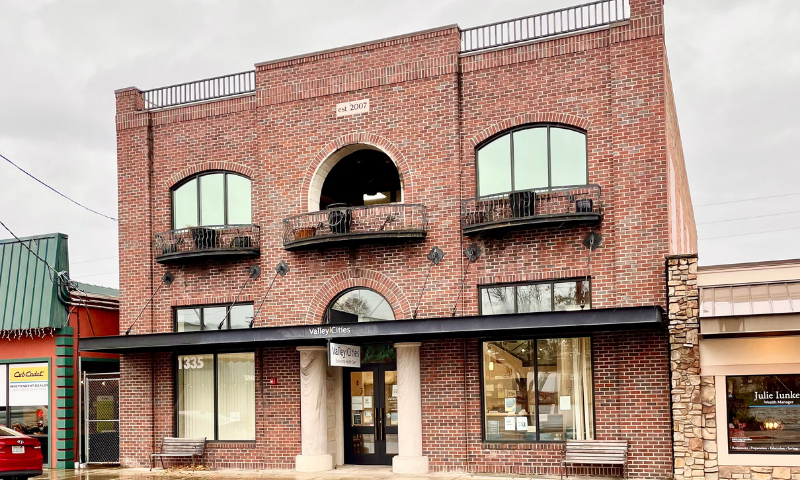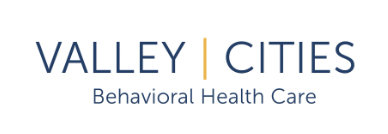Valley Cities Counseling
Overview
Valley Cities Counseling is a mental health treatment center for people seeking treatment near King County. As part of their treatment modalities for recovery, Valley Cities Counseling provides individual psychotherapy, couples/family therapy, and cognitive behavioral therapy during treatment. Valley Cities Counseling is located in Enumclaw, Washington, accepting cash or self-payment for treatment.
Valley Cities Counseling at a Glance
Payment Options
- Cash or self-payment
- Medicaid
- Medicare
- State-financed health insurance plan other than Medicaid
- Private health insurance
Assessments
- Screening for tobacco use
- Comprehensive mental health assessment
- Comprehensive substance use assessment
- Outreach to persons in the community
- Screening for mental disorders
Age Groups
- Children/adolescents
- Young adults
- Adults
- Seniors
Ancillary Services
- Intensive case management
- Case management service
- Chronic disease/illness management
- Court-ordered outpatient treatment
- Diet and exercise counseling
Accreditations
State department of health:

Government agencies issue State Licenses, granting rehabilitation organizations permission to operate their businesses lawfully within specific geographic regions. The specific licenses needed for legal operation are typically determined by the type of rehabilitation program offered by the facility and its physical location.
The Joint Commission:

The Joint Commission accreditation for addiction and behavioral health signifies that a facility has met rigorous standards in patient care, treatment, and safety. This recognition assures patients and professionals of the facility's commitment to providing high-quality, evidence-based care in the fields of addiction and behavioral health, fostering trust and confidence in their services.
Treatment At Valley Cities Counseling

Conditions Treated
Alcoholism:
Alcohol addiction is when a person becomes physically and mentally dependent on alcohol, leading to mood swings, impulsive actions, intense cravings, and withdrawal symptoms. Treatment includes supervised detox, therapy, and support groups. It's important to note that rehabilitation doesn't "cure" alcoholism, but it helps individuals better manage their addiction, regain their ability to function in daily life, and improve their overall well-being.
Mental health treatment:
Mental health services are essential during treatment for drug and alcohol addiction, whether you receive treatment in an inpatient or outpatient setting. While receiving inpatient care, you can expect to have round-the-clock access to mental health therapists and medical staff. Additionally, you will likely receive a number of different therapies and mental health options like individual and group counseling, addiction and relapse prevention education, and coping skills training.
Substance use treatment:
Substance abuse treatment programs can help to address addiction and, if relevant, any co-occurring mental health conditions. Programs include outpatient, inpatient, dual-diagnosis, and partial hospitalization. The addict will receive therapies like cognitive behavioral therapy, or dialectical behavioral therapy, and sometimes complementary therapies like acupuncture and mindfulness-based therapy. By attending skills training and recovery groups you’ll build a strong foundation for your recovery and strengthen your support network, increasing your chances of long-term recovery success.

Levels Of Care
Outpatient:
Outpatient treatment in a rehab center offers flexible therapy sessions, typically ranging from 1-3 hours per week, allowing individuals to continue daily activities while receiving care. In contrast, intensive outpatient programs demand a more rigorous commitment, often involving 9-15 hours weekly, providing a more immersive therapeutic environment without the need for inpatient stays.
Outpatient methadone/buprenorphine or naltrexone treatment:
Methadone maintenance treatment (MMT) offers an alternative to those battling opioid addiction. This regimen centers on the prolonged administration of methadone, an artificial opioid, aiming to decrease or halt the intake of unauthorized opioids like heroin. Coupled with the right dosage, counseling, and supplementary services, MMT can play a pivotal role in anchoring patients' lives, curtailing illicit substance consumption, and minimizing hazards associated with drug misuse, including overdoses and the spread of infections.
Intensive outpatient treatment:
Intensive outpatient programs (IOPs) support clients in maintaining long-term sobriety by providing tailored, high-quality care that adapts to their changing requirements. Clients participate in several treatment sessions each week, typically receiving between nine to 20 hours of outpatient care weekly. As clients achieve stability, the treatment frequency and intensity gradually diminish. Many intensive outpatient rehabilitation centers provide a diverse range of services, such as addiction counseling, training in life skills geared towards recovery, and the option for medication-assisted treatment (MAT). Additionally, evidence-based complementary therapies are frequently integrated into the program.
Regular outpatient treatment:
Regular Outpatient Treatment involves scheduled therapy sessions typically held on an outpatient basis, allowing individuals to receive essential support while maintaining their daily routines. These sessions usually range from one to three times per week, providing a flexible approach to recovery that accommodates the individual's needs and progress. It offers a structured environment for therapy and counseling, enabling individuals to address addiction or mental health issues while continuing to engage in their daily responsibilities.
Aftercare:
Aftercare is the continued support and care that individuals receive following the completion of their primary treatment program for substance abuse or addiction. This phase aims to aid individuals in maintaining their sobriety, improving personal skills and coping strategies, and integrating back into society. Aftercare can include ongoing therapy, support group meetings, education, and monitoring, which are crucial for preventing relapse and promoting long-term recovery. Through a combination of community support, accountability, and personal development, aftercare provides a structured pathway for individuals to continue their recovery journey in a supportive environment.

Treatment Modalities
Individual psychotherapy:
Individual therapy, often referred to as psychotherapy or counseling, is a one-on-one therapeutic interaction between a trained therapist and a client. It provides a confidential space for individuals to explore their feelings, beliefs, and behaviors, working through challenging memories, experiences, or emotions. The therapist facilitates self-awareness, promotes personal growth and insight, and offers coping strategies to manage specific issues like stress, anxiety, depression, and other life challenges. The ultimate goal is to improve the individual's mental well-being and enhance their overall quality of life.
Couples/family therapy:
Couples Therapy in rehab helps couples facing addiction recovery by providing specialized counseling to improve their relationship. Expert therapists guide them through communication, conflict resolution, and trust-building, promoting lasting recovery and a stronger partnership.
Cognitive behavioral therapy:
Cognitive Behavioral Therapy (CBT) is a therapeutic approach that emphasizes the interconnectedness of thoughts, emotions, and actions. It promotes healthy reactions to thoughts and emotions, steering individuals away from harmful responses such as substance abuse. Proven effective for various addiction recoveries, CBT enhances an individual's self-awareness and self-control. Through CBT, individuals learn to better gauge their emotional well-being, communicate more effectively, and handle stress without resorting to drugs or alcohol.
Dialectical behavior therapy:
Dialectical Behavior Therapy (DBT) is an evolved version of Cognitive Behavioral Therapy (CBT) that aims to assist individuals in recognizing and influencing the interplay among their thoughts, emotions, and actions. DBT is particularly beneficial for those grappling with self-harming behaviors, including self-inflicted injuries like cutting, as well as suicidal ideations or tendencies. Clinically, it has shown effectiveness in managing intense emotions and conditions such as Borderline Personality Disorder.
Activity therapy:
Activity therapy is a therapeutic approach frequently used to assist individuals in their recovery from physical addictions or emotional challenges. The primary objective of this therapeutic modality is to involve the individual in creative activities that promote positive changes in their thought patterns. This form of therapy can be conducted one-on-one with a therapist or within a group setting. The ultimate aim of Activity Therapy is to alleviate stress and anxiety while fostering increased self-confidence and improved social interaction skills.
Telemedicine/telehealth therapy:
Telehealth Therapy is a remote care option that allows individuals to access mental health services via digital technology, such as secure video conferencing. This mode enables patients to engage with therapists from their homes, offering flexibility and overcoming geographical limitations. Ideal for those in rural areas, with mobility issues, or tight schedules, Telehealth Therapy ensures quality mental health support is always within reach.
Substance use disorder counseling:
Substance use disorder counseling treatment modalities refer to various approaches and methods used in the counseling and treatment of individuals with substance use problems. This can include individual therapy, group therapy, cognitive behavioral therapy, motivational interviewing, family therapy, and 12-step programs. The goal is to help the individual overcome their substance use, develop healthy coping skills, and lead a fulfilling life in recovery.
Smoking/vaping/tobacco cessation counseling:
Tobacco cessation counseling is a dialogue with a counselor about your tobacco or vaping habits, examining its place in your daily life to strategize quitting. It offers interventions for individuals keen on quitting, encompassing behavioral guidance and group or one-on-one counseling. These sessions can range from short encounters (under 5 minutes) to in-depth discussions (over 10 minutes) and might require multiple meetings.
Group counseling:
Group therapy entails therapeutic sessions conducted in a collective setting rather than one-on-one. It encompasses various modalities, from support groups and experiential therapy to psycho-education and beyond. The approach focuses on treatment and emphasizes the dynamic interactions and shared experiences among group members.
Family counseling:
Family Counseling is a therapeutic service that addresses and resolves conflicts, improves communication, and fosters better relationships within a family unit. Through guided discussions, a trained counselor helps family members gain insight into their dynamics, learn coping strategies, and work towards creating a harmonious living environment. Family Counseling can be a significant step towards improving the overall emotional health and interactions among family members, helping them navigate challenges together in a supportive and constructive manner.
Marital/couples counseling:
Marital/couples counseling treatment modalities refer to various therapeutic approaches used to help couples resolve conflicts, improve communication, and strengthen their relationship. These modalities can include cognitive-behavioral therapy, emotionally focused therapy, solution-focused therapy, and integrative approaches. The goal of these treatments is to help couples identify and address underlying issues and develop healthy relationship dynamics.
12-step facilitation:
Recovery approaches rooted in 12-step programs prioritize extensive peer mentorship and highlight personal development as a cornerstone for maintaining sobriety. Attending 12-step meetings, which are confidential, cost-free, and held daily, is a fundamental component. The 12 steps are grounded in spiritual tenets, guiding participants to confront the core issues of their addiction, assume accountability for their decisions, and recognize aspects out of their control. Chosen sponsors offer individualized guidance and support.
Motivational interviewing:
Motivational Interviewing (MI) is a client-centered therapeutic approach that fosters behavioral change by assisting individuals in exploring and resolving ambivalence. Specifically tailored for addiction treatment, MI helps clients unearth their own motivations to quit substance use and empowers them to take the lead in their recovery journey. Therapists guide clients toward their goals and self-determined pathways to sobriety through empathetic conversation and skillful questioning.
Relapse prevention:
The Relapse Prevention Model is a therapeutic approach designed to equip individuals with strategies and tools to anticipate and cope with potential relapses, especially during the recovery from addictive behaviors or other maladaptive habits. Drawing on cognitive-behavioral techniques, it emphasizes the identification of high-risk situations, developing coping mechanisms, and enhancing self-efficacy. This model fosters long-term behavior change by helping individuals recognize early warning signs of relapse and empowering them to take proactive steps to maintain their recovery.
Abnormal involuntary movement scale:
The AIMS serves as a 12-criteria tool employed by clinicians to assess the severity of dyskinesias, particularly in facial expressions, limb motions, and torso movements, observed in patients undergoing neuroleptic drug treatment. Additionally, it evaluates the overall repercussions, the extent of disability incurred, and the patient's awareness and distress regarding these movements. This assessment tool finds extensive application in research investigations concerning antipsychotic medications to screen for tardive dyskinesia. Its simple framework and rapid evaluation procedure facilitate routine clinical assessments conducted by healthcare professionals or qualified individuals.
Ancillary Services
Languages
- Sign language services for the deaf and hard of hearing
Additional Services
- Pharmacotherapies administered during treatment
- Mentoring/peer support
- Drug or alcohol urine screening
Contact Information
DISCLAIMER: The facility name, logo and brand are the property and registered trademarks of Valley Cities Counseling, and are being used for identification and informational purposes only. Use of these names, logos and brands shall not imply endorsement. BetterAddictionCare.com is not affiliated with or sponsored by Valley Cities Counseling.


